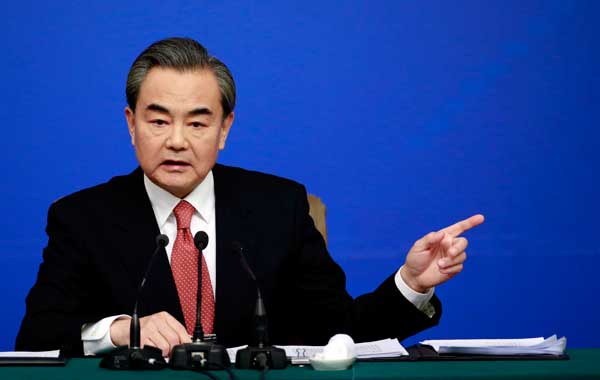 |
|
Foreign Minister Wang Yi, speaking about the Korean Peninsula during a wide-ranging news conference on Tuesday. PHOTOS BY FENGYONGBIN/ CHINA DAILY |
Maintaining stability on the Korean Peninsula is a priority as a renewal of negotiations is sought, says foreign minister
China is displaying flexibility on resolving the Korean Peninsula nuclear issue, according to experts, while Foreign Minister Wang Yi said Beijing is "open to any initiatives" that could help bring the issue "back to the negotiating table".
At a news conference on Tuesday in Beijing during the annual two sessions, Wang said that those involved "have also suggested some ideas, including flexible contacts allowing three-party, four-party or even a five-party format".
After the Democratic People's Republic of Korea conducted a nuclear test and a rocket launch earlier this year, China called for an easing of tension and a restarting of the Six-Party Talks.
Wang said UN Security Council Resolution 2270, which recently expanded sanctions against the DPRK, must be implemented in its entirety. He also said sanctions are necessary and "maintaining stability is the pressing priority, and only negotiations could provide a fundamental solution".
The Six-Party Talks on the peninsula nuclear issue — involving China, the DPRK, the United States, the Republic of Korea, Russia and Japan — were launched in 2003 but stalled in 2008.
Ruan Zongze, vice-president of the China Institute of International Studies, said Wang's latest response "shows both a sense of duty and flexibility", because "no matter what the format of contacts will be, the goal is to achieve negotiation and avoid war".
Ruan said that one of the implied messages is that "Pyongyang should be part of the expected contacts because such contacts without the DPRK will be of no use".